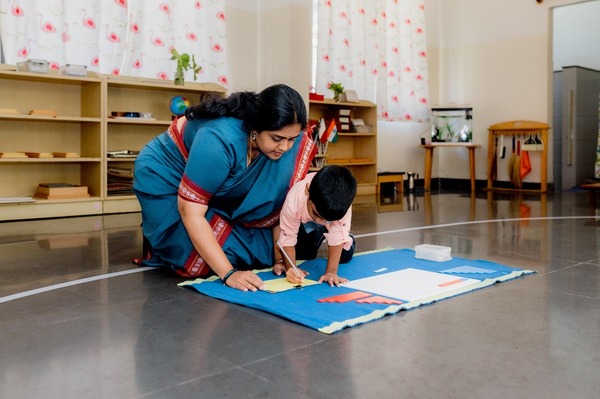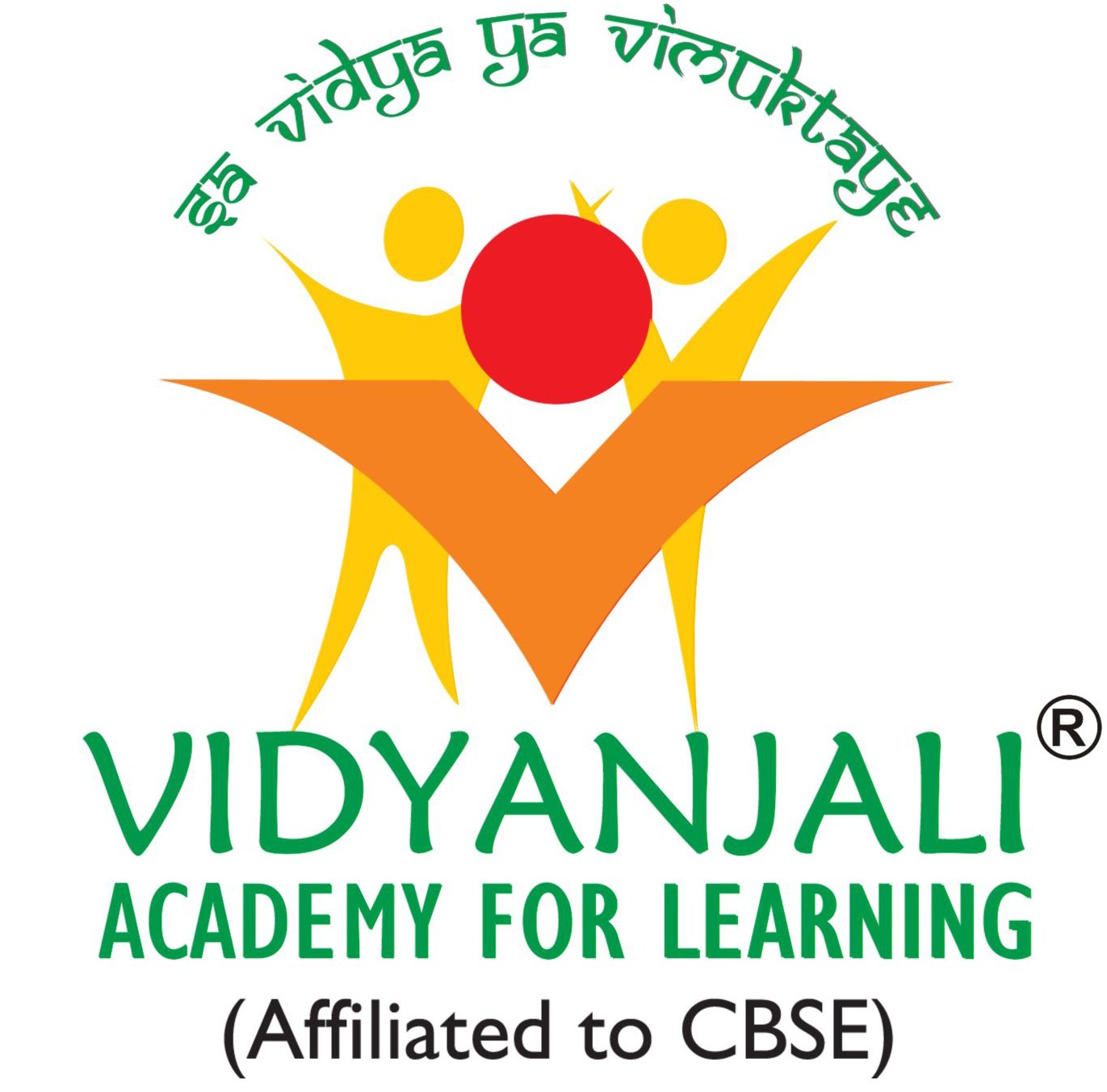
Mistakes
are often considered complete failures. However, in learning, they can be
highly uplifting. The learning model adopted at Vidyanjali Academy, for
instance, such as mistake-led learning, has fostered an environment of support
where students believe that mistakes can help fuel their growth and development
of essential life competencies.
The
blog covers how Vidyanjali applies this approach to produce lifelong learners
who are resilient, adaptable, and equipped to tackle obstacles.
What Is Learning Through Mistakes?
Mistake-driven
learning encourages students to view mistakes as part of the learning process.
Once a student senses that something is not right, they understand it better
and make sure not to repeat it. Moreover, instead of focusing solely on getting
the “right” answers, students gain deeper insights by examining what went
wrong. This method helps students understand their thought processes, develop
critical thinking skills, and learn from trial and error. Therefore, learning
from mistakes should be part of teaching as a valuable aspect of education.
Mistake-Driven Learning vs. Traditional Education
A
conventional education system tends to mark mistakes negatively. This place for
accuracy and correct answers infuses an incorrect culture. Traditional methods
prop the concept of rote learning, that is, when a student learns merely by
memorizing information rather than engaging with the material. However,
mistake-driven learning allows students to interact actively with the material.
There is no punishment for mistakes but rather steps toward mastery of new
ideas.
Why Do Traditional Learning Systems Avoid Mistakes?
In
most cultures, mistakes are viewed as an expression of weakness or failure by
the person who makes them. Schools and organizations reward people for their
successes and penalize their failures. Thus, people usually don't take risks to
avoid committing mistakes.
In
the traditional education system, students are not given opportunities to
explore things on their own and make mistakes. This fear of trying out could
dampen creativity, curiosity, and learning.
Common Practices in Schools That Prevent Inaccuracies
Traditional
education methods, such as rote learning and high-stakes testing, can
discourage students from making mistakes. This approach leaves them
uncomprehending facts for fear of getting wrong marks in assessments, thus only
memorizing facts. If students give the wrong answer, they earn negative marks,
which dilutes their confidence and interest in learning. This approach teaches
students to avoid errors, preventing them from exploring ideas and developing
resilience.
Impact on Student Self-Credibility and Development
When
mistakes are penalized, students may become afraid to take risks or ask
questions. This fear limits their ability to learn from their experiences,
which can impact their self-confidence. Students who are not allowed to make
mistakes may struggle with problem-solving in real-life situations. They might
also be less adaptable and more likely to avoid challenging tasks.
The Science behind Learning from Errors
Learning
from mistakes is backed by science. When we make errors, our brains release
dopamine, which helps us remember what
went wrong. This chemical response strengthens neural pathways, making it
easier to avoid similar mistakes in the future. In this way, mistakes become
essential tools for learning and improvement.
Neuroscience of Mistakes
Several
research findings indicated that errors lead to a particular brain activity. If
an error occurs, the brain slows down and focuses on what is incorrect. This
process is termed post-error slowing (PES), in which the brain aids
concentration.
PES
leads to greater attention by the students, which ultimately leads to better
learning. Through errors, appropriate responses are strengthened, and pathways
become more robust due to the strengthening of the learning pathways.
Dopamine and Error Correction
Dopamine,
a chemical in the brain associated with motivation, is also involved in error
correction. Whenever we make a mistake and correct it, dopamine is released,
helping our brain memorize the right response. This process supports memory
retention and makes learning from errors effective for enhancing long-term
memories. As students learn from mistakes, dopamine motivates them to try again
and helps them improve at tasks.
Metacognition: Reflecting on Mistakes to Improve Learning
Metacognition
is the ability to think about one’s own thought processes. Thus, when students
talk about their mistakes, they become aware of their learning routine and
change their plan of operations in solving problems by thinking deeply. This
prevents the repetition of mistakes caused by ascertained reasons.
How Vidyanjali Incorporates Mistake-Driven Learning
Vidyanjali
Academy promotes mistake-driven learning through a curriculum that emphasizes
exploration and understanding. The teachers stimulate students to learn beyond
merely memorizing facts but understanding concepts deeply. This puts students
on the path of making mistakes and asking questions and other solutions in
place. The curiosity and independence of thought that Vidyanjali projects help
learners become more involved.
Some Specific Techniques Used at Vidyanjali
At
Vidyanjali, teachers use specific techniques to help students learn from their
mistakes. Deliberate error-making involves setting up tasks where students are
likely to make errors and learn by analyzing what went wrong. In addition,
students are asked to do reflective journaling, which gives them a chance to
write about their experiences and think about how to improve. Moreover, we
provide real-time feedback sessions for immediate guidance and allow students
to correct mistakes as they happen.
Support for Growth Mindset and Resilience
Vidyanjali's
approach supports a growth mindset. Every student is made to realize that
abilities can be developed with effort and dedication. Teachers emphasize that
making mistakes is a part of learning. This mindset builds resilience as
students learn to view challenges as opportunities to grow. By supporting the
growth-oriented attitude, Vidyanjali helps students view learning in a more
positive aspect.
Benefits of Learning from Mistakes for Lifelong Learners
Humans
make mistakes, and so do they learn from them. Hence, making mistakes brings an
umbrella of benefits for students in terms of growth, decision-making, and
developing critical life skills. The following are the key advantages of
learning from mistakes for lifelong learners:
Critical Thinking and Problem-Solving Skills
Learning
from mistakes encourages students to look for alternative solutions. Students
learn to think creatively and find different approaches when a solution does
not work. This practice strengthens critical thinking and problem-solving
skills. Children who are comfortable with mistakes are better at adapting to
solving complex problems and responding to new situations.
Adaptability and Growth
Mistake-driven
learning prepares students to adapt to changes and overcome challenges.
Adaptability is the foundation of career success and personal growth, as it
enables individuals to navigate conditions by respectfully responding to new
information and situations. Vidyanjali’s students learn to be resourceful and
open to feedback, making them better equipped for an ever-changing world.
Building Emotional Intelligence
Learning
to handle mistakes builds emotional intelligence, which includes
self-awareness, empathy, and self-regulation. At Vidyanjali, students learn how
to deal with frustration and disappointment. Once they learn to reflect on
mistakes calmly, they develop resilience and patience. Emotional intelligence
helps them navigate both academic and life challenges by enhancing personal
relationships and overall well-being.
Real-life Applications and Success Stories at Vidyanjali
At
Vidyanjali Academy, students grow by learning from their mistakes. Teachers
encourage a supportive environment where students feel safe to make mistakes.
This approach helps students gain confidence and self-awareness. They learn to
face challenges and improve with each experience.
Success Stories How Vidyanjali Molds Students
The
Vasa Family told us how their children had gained independence and respect at
Vidyanjali. Their kids enjoy learning while being safe and motivated to
explore. The Mariyappan Family appreciates the equal opportunities that their
children receive. They have excelled in several activities, such as sports,
dance, and other STEM programs. These opportunities enable students to learn
practical skills beyond academics.
Teacher and Student Testimonials
Teachers
at Vidyanjali use patient, thoughtful methods. They believe mistakes are
stepping stones to growth. Mrs.Swathi L Reddy, Montessori Director, highlights
the nurturing environment created through continuous training. Vidyanjali’s
team works together to support each
student’s journey.
Students
feel comfortable in Vidyanjali’s classrooms. They appreciate that teachers are
approachable and understanding. According to Roman Vasa, Vidyanjali’s staff
give personal attention and extra care.
Final Thoughts
Vidyanjali
Academy is a mistake-driven learning organisation that helps students develop
skills and be cautious while they learn. Our programs help students understand
the significance of making mistakes in their learning process and increase
confidence, adaptability, and critical thinking skills. This academy also
prepares students for future challenges.
Vidyanjali
Academy offers a unique path for personal and academic development for parents
and educators interested in promoting a love of learning. Contact us at info@vidyanjali.in
to get all the required details for our admission processes and other queries.
Frequently Asked Questions
1. Why is making mistakes
important in education?
Making
mistakes helps students understand concepts better and builds resilience. When
students identify and correct their errors, they learn more deeply. For
example, in math, solving a problem incorrectly teaches them what went wrong,
which strengthens their skills for the future. Mistakes help students develop
confidence and encourage a growth mindset.
2. How does Vidyanjali ensure
students learn from their mistakes without feeling demotivated?
Vidyanjali
creates a safe space where students can make mistakes without fear. Teachers
provide guidance and support. This way, students' perceptions of making
mistakes change, and they see them as learning steps. For example, during class
discussions, teachers praise students for trying, even if answers are
incorrect, which increases their confidence and motivates them to keep
improving.
3.
What is mistake literacy, and how does it differ from traditional
learning?
Mistake
literacy is the ability to recognize, understand, and learn from mistakes.
Unlike traditional learning, which often focuses on the right answers, mistake
literacy values the learning process. At Vidyanjali, students are encouraged to
explore solutions, identify errors, and grow from them, which builds deeper
understanding and problem-solving skills.
4. Can learning through
mistakes be applied to all subjects?
Yes,
learning through mistakes benefits all subjects. In science experiments,
students might get unexpected results, leading to valuable insights. In
language classes, they learn by correcting grammar or pronunciation errors.
This method builds adaptability and encourages students to view challenges as
opportunities in any subject.
5.
How does this method help in career readiness and future learning?
Learning from mistakes prepares students for real-life challenges. It teaches resilience, solvability, adaptability, and other skills that are applicable to absolutely any profession. For instance, a student who learns from project mistakes will be more confident in handling workplace tasks. Such an approach prepares a solid base of lifelong learning, which guarantees further development and success.



